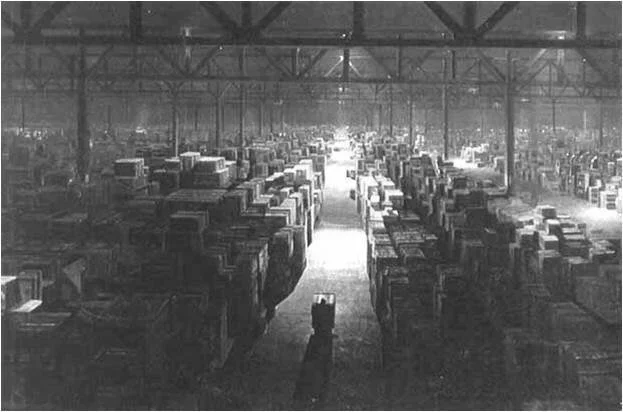Holocaust Remembrance Day - January 27
Years ago – decades ago -- I was a history major. In the years that followed, working in three major industry associations, I would often drift back into my love of history. But even though I spent many years as president of AIIM, working with many records managers, archivists, and document gurus, I don’t think I truly appreciated the unique role that records play in preserving our history for future generations – and until I dove into my research for Immigrant Secrets. Without records, there is no genealogy. But I fear our ability to preserve and access records for the future is becoming more and more challenging.
I recently reread George Orwell’s 1984. One of the key precepts in his dystopia is the notion that the past is not immutable – that new “facts” can be created to substitute for old “facts” to create entirely new “memories” of the past, memories that can be endlessly manipulated to serve political interests. The Party slogan in 1984 captures the essence of the idea: “Who controls the past controls the future: who controls the present controls the past.”
Every record has been destroyed or falsified, every book rewritten, every picture has been repainted, every statue and street building has been renamed, every date has been altered. And the process is continuing day by day and minute by minute. History has stopped.
Of course, there is a difference between creating new “facts” out of thin air to drive make-believe conclusions and re-examining the past to better understand our history and learn from it. It is possible to both value the integrity of facts and records and realize that those in positions of privilege often skew the interpretation of those facts to serve their own interests. It is not always simple to hold these two seemingly conflicting ideas in our head at the same time – 1) facts are facts, but 2) subject to interpretation and re-interpretation – but I think it is the only way we can really learn from the past.
But everything begins with how facts are recorded, and how they are preserved. The massive explosion in the volume of information, consumer-based technologies to create fake news, photos, and videos, and ubiquitous social technologies that allow any lunatic to globally disseminate that fake information at the push of a button are all colliding to make preserving our history more challenging every day.
All of which raises the stakes to find examples and models of those who are working hard to accurately preserve our history. Which brings me on Holocaust Remembrance Day (January 27) – the day that the Auschwitz-Birkenau concentration camp was liberated – and to the important work being done by the Auschwitz-Birkenau Museum and Memorial.
In his introduction to the Museum’s 2022 annual report, Director Piotr M. A. Cywiński wrote:
Russia’s invasion of sovereign and independent Ukraine flagrantly violated the international guarantees granted to the state. The Kremlin’s rhetoric and aggression unequivocally ended the post‑war era in Europe, part of the world order resulting from the experience of the Second World War. This makes it imperative to have stable, inviolable reference points to redefine common spaces of security, peace, and democracy. One such absolute point of reference is still the evident and tragic experience of Auschwitz. Today we can all see and better understand how much we need memory, which is the key to planning our future.
Check out the Museum’s fine work. Listen to the careful documentation of the history of Auschwitz on their podcast. Follow the Museum on Twitter.
Remember.





